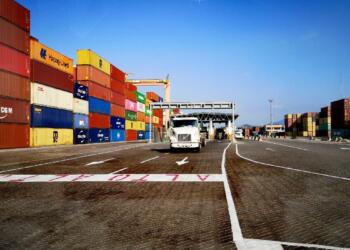
The European Union (EU) announced yesterday that negotiations with Mexico to modernize the Global Agreement that has governed their political, economic and cooperation relations since 2000 have been concluded.
Through a statement, it was reported that this new agreement, the result of a dialogue between Maroš Šefčovič , EU Commissioner for Trade and Economic Security, and Marcelo Ebrard, Secretary of Economy , seeks to strengthen and diversify bilateral relations through a more ambitious, modern and sustainable framework.
The agreement focuses on fostering political dialogue, strategic cooperation and economic relations , promoting shared values such as human rights, democracy and sustainable development.
It also sets advanced standards to combat corruption in the public and private sectors , and addresses global issues such as climate change, international security and strengthening sustainable supply chains.
Trade between the EU and Mexico is already significant, with goods worth €82 billion in 2023 and services worth €22 billion in 2022.
This agreement seeks to further strengthen the economic relationship through the elimination of tariff and non-tariff barriers , new opportunities for European exports in sectors such as agri-food, financial services and telecommunications; and rules to strengthen the supply chains of critical raw materials.
In addition, it has a chapter dedicated to digital commerce that promotes technological transition in both regions.
On the other hand, it was stressed that this agreement will protect and encourage European investments in Mexico.
A central aspect of the agreement is its chapter on trade and sustainable development , which includes binding commitments on labor rights, environmental protection and corporate responsibility.
This will be supervised by a specific dispute resolution mechanism and will have the active participation of civil society organizations.
Benefits for European farmers
The deal removes tariffs of up to 100% on key products such as cheese, pork, chicken, wine and chocolate, which will benefit European exporters.
In addition, it extends the protection of Geographical Indications to 568 iconic European products, improving their recognition and competitiveness in the Mexican market.
Next steps
Once the political negotiations are concluded, both parties will proceed with the corresponding legal and ratification procedures.
This renewed agreement, which will replace the one in force since 2000, establishes a platform for a stronger, more inclusive relationship adapted to the global challenges of the 21st century.
Since 2008, Mexico has been one of the EU’s 10 strategic partners, and negotiations to modernize the Global Agreement began in 2016, marking the commitment of both regions to strengthen their partnership in key areas such as the economy, climate change and human rights.
It should be noted that the recently announced Foreign Trade Policy of the Mexico Plan includes strengthening the country’s trade agreements as one of its priorities.
Comment and follow us on X:@GrupoT21














